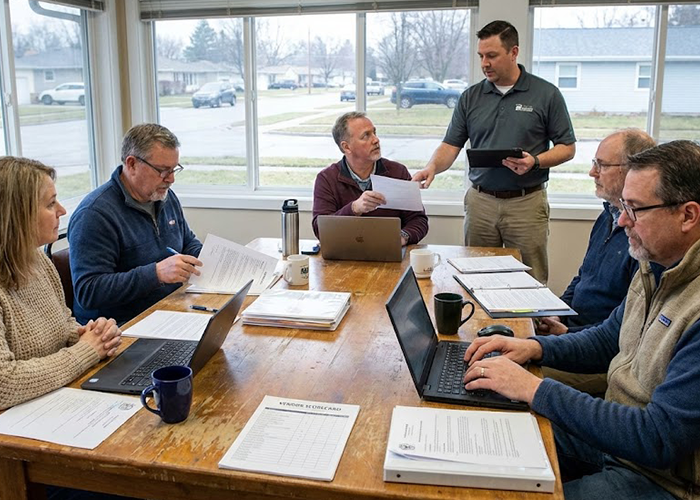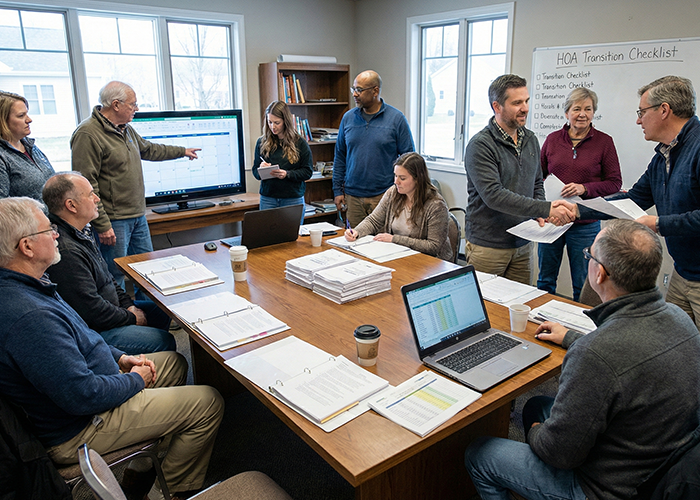What Is The Political Action Committee In HOAs?

There is some debate about forming a political action committee in HOAs. While some believe that it is perfectly fine, and even helpful, to have a PAC within an HOA community, others feel that it would not be right to mix HOA business with political matters. Below, we discuss whether or not an HOA can or should create a political action committee.
Browse By Category
Sign up for Our Newsletter
There is some debate about forming a political action committee in HOAs. While some believe that it is perfectly fine, and even helpful, to have a PAC within an HOA community, others feel that it would not be right to mix HOA business with political matters. Below, we discuss whether or not an HOA can or should create a political action committee.
What Is a Political Action Committee in HOAs?
A political action committee (PAC) is a committee that gets involved in political issues, such as new legislation and elections, that would have an impact on community associations. Such a committee usually advocates for legislation that supports HOAs and opposes legislation that would make HOA management and operations unnecessarily difficult. In other words, this committee seeks to make HOA political contributions.
Can an HOA Create a Political Action Committee?
 There are many HOAs that would like to form an association political action committee. For the most part, it is possible to create one, though state laws and the association’s governing documents may contain restrictions. As such, before association members dive into anything blind, it is best to check state and local laws as well as the HOA’s CC&Rs and bylaws.
There are many HOAs that would like to form an association political action committee. For the most part, it is possible to create one, though state laws and the association’s governing documents may contain restrictions. As such, before association members dive into anything blind, it is best to check state and local laws as well as the HOA’s CC&Rs and bylaws.
It is worth noting that most states require PAC registration. The committee must also follow certain procedures. For instance, in Connecticut, a PAC must register with the State Elections Enforcement Commission. The committee must also consist of a chair and a treasurer. It must also set up a bank account and file periodic disclosures.
Should an HOA Create a Political Action Committee?
Forming a political action committee in HOAs is easy enough. Given the right resources and adherence to proper protocol, associations can often create them. However, before considering whether you can form a PAC, it is important to ask whether you should form one.
Generally, an HOA is not recommended to dabble in politics and form a PAC. Most experts would agree that establishing a political action committee within an HOA has more pitfalls than benefits.
To drive the point further, here are the top reasons why creating a political action committee in HOAs is ill-advised.
1. The Board Should Focus on the HOA
When homeowners form a political action committee, there is a smaller potential for friction. However, Things are different if the HOA board wishes to create one.
The HOA board has a fiduciary duty to act in the best interests of the association. Creating a PAC may conflict with this, especially if the association has to use HOA funds to do it. Association funds must only be used for association purposes, and a political action committee does not meet the criteria.
Additionally, the HOA board should focus its efforts on the association. Devoting time to a political action committee may interfere with association business. After all, PACs demand both time and resources.
2. It May Violate the Certificate of Incorporation
An association’s Articles of Incorporation define its purposes. An HOA files this document with the Secretary of State upon incorporation. If this document does not align with the purpose of the PAC, then an HOA risks violating its own Certificate of Incorporation. Depending on the severity of the violation, a breach of this document could result in several penalties, including financial damages and legal action.
3. It May Complicate Taxes
 Homeowners associations are corporations, which means they must pay taxes and file tax returns. Things can quickly become complicated when a political action committee is involved.
Homeowners associations are corporations, which means they must pay taxes and file tax returns. Things can quickly become complicated when a political action committee is involved.
Tax authorities may disapprove if an HOA collects money and uses its funds for functions outside of association purposes, such as the PAC. An association may also face challenges when filing its tax returns.
4. An HOA Can’t Use Funds for the PAC
Perhaps the most glaring reason an HOA should not form a PAC is association funds. An HOA can’t use its operating budget to fund the creation and operation of a political action committee. It may not include the PAC’s expenses in the annual budget or funnel funds from the operating account into the PAC’s bank account.
Moreover, the HOA can’t force homeowners to make contributions to the PAC. When homeowners find out their dues go to a completely separate committee, there is guaranteed pushback. Board members can’t lie to homeowners, as that would constitute fraud.
How Can HOAs Make a Difference?
Forming a political action committee in your HOA may be a mistake. There are plenty of drawbacks. However, it is understandable for an HOA and its members to want to get involved in politics, especially legislation that could potentially impact associations. After all, several states have been considering new bills that would impose stricter regulations on HOAs and condos.
If an HOA or its members wish to make a difference, they can do so by supporting the Community Association Institute (CAI). CAI has a political action committee that supports candidates who have community associations’ best interests at heart. An organization like CAI stands to make a more impactful difference in legislation, given its size and resources.
Know When to Step Aside
It is easy to see why some members might want to form a political action committee in HOAs. Advocating for the interests of community associations certainly has its appeal. However, lines can quickly blur when an HOA involves itself directly in political matters. Instead, leaving the job to larger groups and organizations is best.
HOAManagement.com is your one-stop shop for all things HOA-related. Start browsing our website to look for HOA management companies, lawyers, and vendors. We also offer free templates and guidance on HOA state laws!
RELATED ARTICLES:
- HOA Budget Best Practices Every Board Member Should Know
- The Different Types Of HOA Committees And How To Set Them Up
- Which States Allow Accessory Dwelling Units In HOAs?
Trending Now
Related Article
Sign up for Our Monthly Newsletter
Sign up below for monthly updates on all HOA Resource















